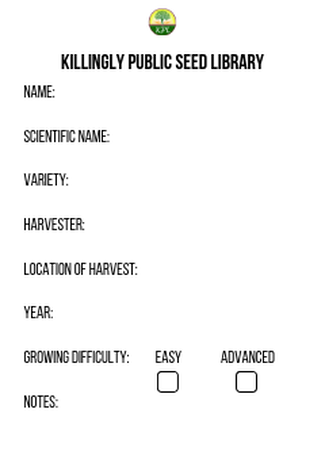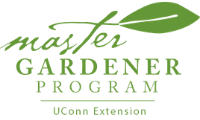Our collection of vegetable, flower, and herb seeds are perfect for first time gardeners just breaking ground, and established growers who would like to enhance their gardens. We welcome you to help yourself to our collection and to save and donate your seeds for years to come. All of our seeds have been made available by the generous donations of established seed companies and private growers in the area.
Seed Selection
- Seeds are arranged alphabetically and by common name.
- We have envelopes available for you to place your seeds in.
- You may select as many seeds as you need, the packets can be divided.
- Please use our log to make note of how many varieties were taken, and whether you took a partial or full packet of seeds.
This is all run through the honor system, so please be considerate of other community members looking to build their gardens.
Seed Collection
Please do not file your seeds.
|
|
Seeds are provided at no cost to you thanks to the donations of local gardeners, businesses, and seed companies.
We are all committed to making this a community resource that encourages gardening, healthy living & sustainability, while sharing the experiences and expertise that surrounds our agricultural heritage. Vertical Divider
|
Special Thanks To...
|
Helpful Tips
There are many resources to help make gardening and seed saving less of a mystery. Some seeds can just be put directly into the ground and will have plenty of time to grow, flower, and produce vegetables and blossoms. Check the date to maturity on the back of every seed packet. Some seeds like to be started indoors to have a little extra time to grow before our local frost date, usually around May 18th.
Some of the easiest seeds to grow and save include: basil, beans, carrots, cilantro, dill, eggplant, lettuce, onions, peas, peppers, sunflowers, tomatoes, and zinnias.
Check your seed packet and look for labels like open-pollinated or heirloom seeds. These are great for beginners and produce seeds that will eventually produce plants like the ones you planted.
Hybrid seeds are the product of cross pollinated plants and the seeds saved will not be true to the parent plant. Avoid saving these seeds.
There are many resources to help make gardening and seed saving less of a mystery. Some seeds can just be put directly into the ground and will have plenty of time to grow, flower, and produce vegetables and blossoms. Check the date to maturity on the back of every seed packet. Some seeds like to be started indoors to have a little extra time to grow before our local frost date, usually around May 18th.
Some of the easiest seeds to grow and save include: basil, beans, carrots, cilantro, dill, eggplant, lettuce, onions, peas, peppers, sunflowers, tomatoes, and zinnias.
Check your seed packet and look for labels like open-pollinated or heirloom seeds. These are great for beginners and produce seeds that will eventually produce plants like the ones you planted.
Hybrid seeds are the product of cross pollinated plants and the seeds saved will not be true to the parent plant. Avoid saving these seeds.
Watch our helpful YouTube series. You can find helpful tips and facts about planting herbs, propagation, container gardening, repotting, rehabilitating dying plants, and more.
|
Vertical Divider
The Killingly Ag Commission's mission is to promote agricultural businesses and education throughout the town of Killingly. They regularly hold events, classes and workshops to educate the public on farming and gardening practices that they can adopt into their lives.
Find them on Facebook. |
Vertical Divider
This program is designed for students interested in a career in agriculture or an agriculture related field; including mechanics, engineering, aquaculture, animal sciences, companion animal care, horticulture, floral design, environmental sciences, forestry, biotechnology, and others.
Find them on Facebook. |
Vertical Divider
The UConn Extension Master Gardener Program is an Educational Outreach Program that is part of UConn Extension. The program consists of horticulture training and an outreach component that focuses on the community at large. Master Gardeners are enthusiastic, willing to learn and share their knowledge and training with others.
|





